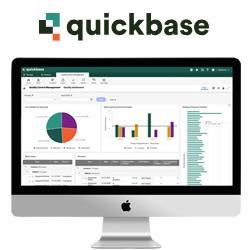New initiative, EnergyTag, allows energy users to verify the source of their energy every
EnergyTag, an initiative led by some of the world's largest players in renewable energy, will help bring greater transparency for energy consumers and accelerate the shift to clean energy.
An independent, non-profit initiative, launched today, will enable energy consumers to track the source of their energy and understand their carbon emissions in a totally new way. EnergyTag, which brings together over 60 of some of the biggest names in tech and energy, is developing an industry standard to deliver hourly certificates that show consumers exactly where their energy is coming from, and understand their carbon emissions in real time.
EnergyTag brings together leading players including Accenture, Microsoft, Google, Association of Issuing Bodies, CertiQ, EIT InnoEnergy, ECOHZ, Elering, Eneco, Energinet, Energy Web Foundation, ENGIE, Eurelectric, FlexiDAO, Iberdrola, I-REC Standard, M-RETS, OVO Energy, Ørsted, PwC, RECS International, WattTime, WindEurope and many others.
EnergyTag's Council and Advisory Board are working together to define a set of guidelines that will form the basis of a market for energy certificates with a timestamp of 1 hour or less. In parallel, the initiative will stimulate the first voluntary markets for the certificates by coordinating a series of demonstrator projects around the world showcasing real-time energy tracking technologies.
Dr Toby Ferenczi, EnergyTag's founder commented: "It's a cruel irony that the more successful we are at deploying renewable energy the harder it gets to integrate that energy into the grid. Adopting hour-by-hour energy certificates build's consumer trust by linking production directly to consumption, supports the growth of energy storage, and enables accurate carbon accounting. Our goal is to establish a common, tradable instrument that provides traceability across markets for power, flexibility and carbon. Speeding up the switch to renewables is vital if we are going to keep within the 1.5-degree climate goal."
Phil Moody, who will chair the EnergyTag council and advisory board said: "707 million electricity certificates (707 TWh) were issued in Europe last year involving 26 European countries. This success demonstrates what can be achieved when the industry identifies a need, builds a solution itself and then gets legislative support and regulatory approval once established. Current renewable energy procurement methods match average supply and demand over a 12-month period, but to reach the level of renewables required to meet new climate targets, there has to be some way to track the time of generation, which is why EnergyTag is the critical next step."
Google is one example of a corporate clean energy buyer that has set itself an ambitious goal for 24/7 energy tracking.
"Google intends to run on carbon-free energy everywhere, at all times by 2030," says Michael Terrell, Director of Operations at Google and head of its 24/7 carbon-free energy programme. "EnergyTag will be an important tool for helping Google and many others source carbon-free energy for their operations, at an hourly level. We are excited to be part of the EnergyTag initiative and look forward to supporting the development of this important standard."
EnergyTag works with and within existing electricity certification schemes (such as GOs and RECs) as a voluntary ‘add-on' and will not replace these schemes.
Featured Product

